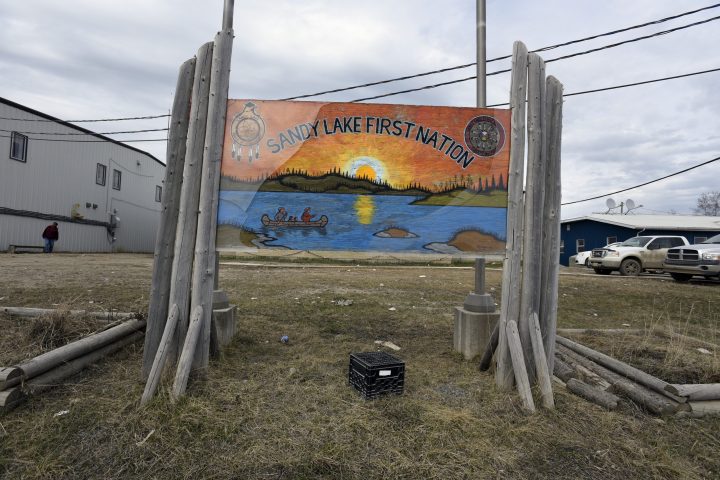A northern Ontario First Nation must allow a banished woman to return, a human rights tribunal has ruled, saying the community’s leaders evicted the woman as retribution for her common-law partner’s political disputes.

The Canadian Human Rights Tribunal said Sandy Lake denied Angele Kamalatisit’s right to housing because of her common-law partnership with Ringo Fiddler and ordered the First Nation to pay her $20,000 plus interest for pain and suffering – the maximum allowed under the law.
“The complainant was not only discriminated against but she was also an innocent victim between the band, Ringo and his supporters,” tribunal member George Ulyatt wrote in his decision in May. “The complainant testified in her own words that she felt threatened, bullied, upset, disappointed, afraid and panicked, sick and distraught.”
Kamalatisit and her son, who had joined his mother in Sandy Lake a year earlier, were forced from the community in August 2012. They received letters on Aug. 30, saying that they had to leave or else they’d be charged with trespassing on a reserve.
The following day, the chief led a contingent that included the deputy chief, seven of the eight band councillors, a Nishnawbe-Aski police officer and band security to the house that Fiddler and Kamalatisit shared.
“There was no need for such a show of force and it only could have been intended to frighten and scare the complainant. They were successful, for the complainant hid in the house until the commotion had died down,” Ulyatt wrote.
- ‘Alarming trend’ of more international students claiming asylum: minister
- TD Bank moves to seize home of Russian-Canadian jailed for smuggling tech to Kremlin
- Why B.C. election could serve as a ‘trial run’ for next federal campaign
- After controversial directive, Quebec now says anglophones have right to English health services
Kamalatisit and Fiddler travelled to a nursing station that evening, he added, because she worried she was having a heart attack, trying to be secretive about it because they feared the chief and council would take action against her.

Get daily National news
Kamalatisit and her son were then medically evacuated to Thunder Bay, Ont., 600 kilometres southeast of the fly-in community they called home.
“This effectively destroyed the family as the complainant and (her son) could not return to Sandy Lake,” Ulyatt wrote. “The evidence was that there was never a reunification with the family or extended family.”
He said that Kamalatisit was targeted because Fiddler, who lost bids for band council in 2010 and 2012, had been involved in an effort to oust the chief and councillor after running for the second time.
Several disgruntled band members, Fiddler included, had circulated petitions and letters that accused Bart Meekis, who was chief at the time, and a band councillor of having extra-marital affairs while in office, Ulyatt wrote. Meekis is no longer chief and the councillor has since died.
“Ringo, however, was a band member and was sheltered from retaliatory action, thus the complainant became the target and ultimately, the victim,” he said, noting that Kamalatisit was born in Fort Alberni First Nation and was not a member of the band despite having lived, worked and volunteered in Sandy Lake for 10 years.
WATCH: (June 19) Grassy Narrows pleading for mercury care home funding

Sandy Lake argued before the tribunal that Kamalatisit had also been involved in the political unrest, pointing to a Facebook post in which she defended her partner and accused the councillor of having an affair.
The First Nation also said they had received “reliable reports” that Kamalatisit had been stirring up trouble and making band members uncomfortable. Sandy Lake also claimed they had received a threat against Kamalatisit and were concerned for her safety.
But Ulyatt said he found the First Nation’s evidence unconvincing, noting that Kamalatisit testified that she stayed out of politics given that she was not a band member. He added that the chief wasn’t able to identify anyone who had expressed concerns about Kamalatisit, and there was no evidence to suggest anyone had threatened her.
The lawyer representing Sandy Lake said her clients couldn’t be reached Monday.







Comments